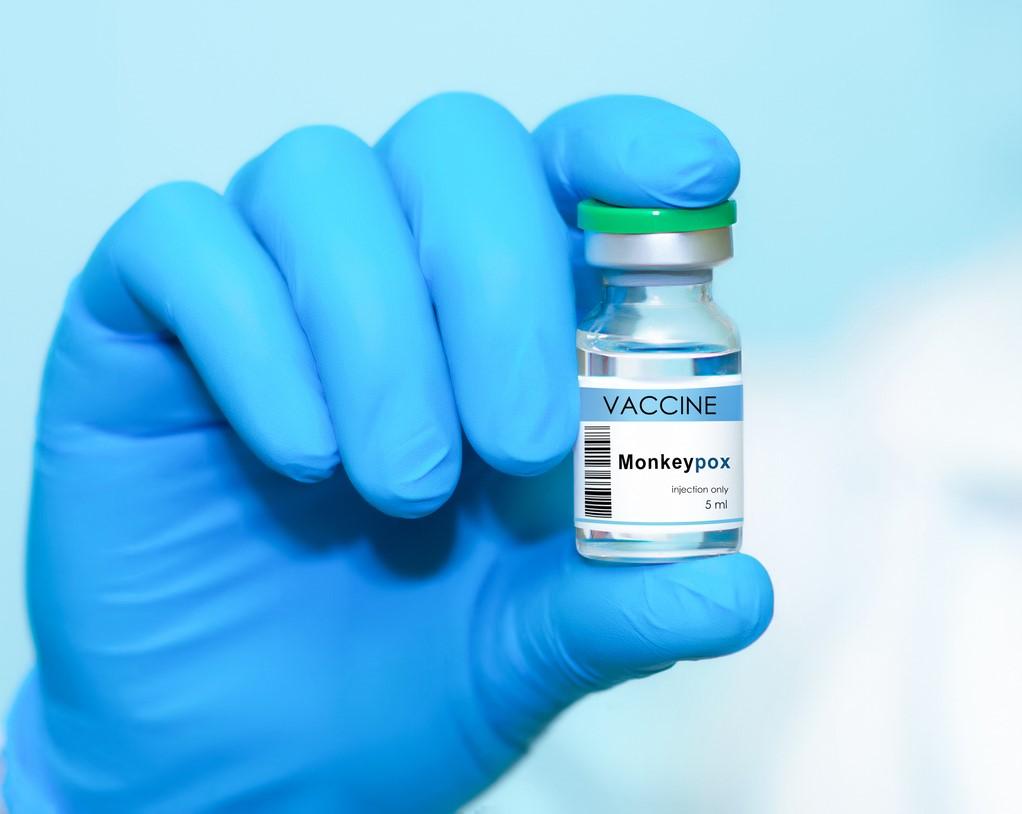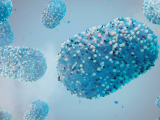In contrast to a recent Dutch preprint that cast doubt on the efficacy of Bavarian Nordic's Jynneos (modified vaccinia Ankara [MVA]) vaccine to produce significant neutralizing antibodies to monkeypox, the company has released its own preprint study showing that single and two-dose Jynneos vaccinations administered subcutaneously induced durable neutralizing antibody responses in healthy volunteers.
Results were comparable to older-generation replicating smallpox vaccines.
The study included healthy adult volunteers who had never been vaccinated against smallpox and were randomized to receive either placebo injections or one or two doses of MVA. The one-and two-dose MVA produced strong antibody responses at week 2 after injection and further increased at week 4.
High neutralizing antibodies compared to baseline were observed for at least 6 months in all groups, with a return to baseline at year 2, the authors said.
No serious adverse events were recorded, though most participants reported some injection site redness or pain.
The authors also studied a single booster dose of MVA in volunteers who had previously been immunized against smallpox.
"A single MVA-BN booster administered to those initially vaccinated with older generation replicating smallpox vaccines in the distant past also evoked a rapid increase in neutralizing antibody titers, that was highest at 2 weeks and remained elevated relative to baseline at 6 months after vaccination," the authors wrote.
"These data suggest that priming with 1 or 2 doses of MVA-BN can induce B-cell immune memory similarly to that of older generation replicating smallpox vaccines, which have conferred long-term protection and are believed have prevented orthopox outbreaks (including Monkeypox transmission) until recently."
Overall, the authors said MVA performed similarly to older generations of smallpox vaccines but with much less severe side effects.
US cases approach 22,000
The US Centers for Disease Control and Prevention reported 390 more monkeypox cases, raising the national total to 21,894.
The Lancet recently published a case description from University of Miami clinicians about the case of a man with monkeypox who had no recent travel or contact with human or animals with a similar rash or illnesses and reported no sexual activity for the past 6 months.
The 37-year-old man was HIV positive and had a history of secondary syphilis infection. He was treated with Tpoxx (tecovirimat), an antiviral drug. The authors of the study suggest all immunocompromised patients, as well as pregnant women, be treated with the antiviral when infected with monkeypox.
A new study in the American Journal of Gynecology - Maternal Fetal Medicine suggests that monkeypox in pregnancy is associated with a high risk of perinatal loss and transmission to the baby.
The study was based on a systematic review of four studies during previous monkeypox outbreaks, and case counts were notably small. No maternal deaths were recorded, but miscarriage occurred in 39% (95% confidence interval [CI], 0 to 89.0%) and intra-uterine fetal death occurred in 23.0% (95% CI, 0 to 74.0%) of cases.























